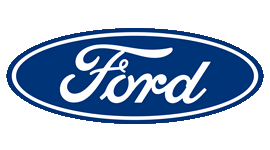![]()

Owners of new Ford vehicles will be able to tune in to AM radio in their cars, trucks and SUVs after all.
CEO Jim Farley wrote in social media postings Tuesday that the company is reversing a decision to scrub the band after speaking with government policy leaders who are concerned about keeping emergency alerts that often are sounded on AM stations.
“We’ve decided to include it on all 2024 Ford and Lincoln vehicles,” Farley wrote on Twitter and LinkedIn. “For any owners of Ford’s EVs without AM broadcast capability, we’ll offer a software update” to restore it, Farley wrote.
Nebraska Broadcasters Association Board Chairman and Chadrad Communications owner Dennis Brown says “this is kind of like the Nuggets sweeping the Lakers last night. It feels great in the moment but there’s still more to be done.”
The move by Ford comes after a bipartisan group of federal lawmakers introduced a bill Wednesday calling on the National Highway Traffic Safety Administration to require AM in new vehicles at no additional cost.
Sponsors of the “AM for Every Vehicle Act” cited public safety concerns, noting AM’s historic role in transmitting vital information during emergencies, such as natural disasters, especially to rural areas.
Sen. Edward Markey, D-Mass., one of the bill’s sponsors, has said eight of 20 major automakers including Ford, BMW and Tesla have pulled the band from new vehicles.
“Ford’s reversal reflects an overdue realization about the importance of AM radio, but too many automakers are still going the wrong direction,” Markey said in a written statement Tuesday. He said Congress should still pass the bill to keep access to the band.
Ford removed AM from the 2023 Mustang Mach-e and F-150 Lightning electric pickups after data collected from vehicles showed that less than 5% of customers listened to it, spokesman Alan Hall said. Electrical interference and reducing cost and manufacturing complexity also played a role.
The company also took it out of the 2024 gasoline-powered Mustang, but will add it back in before any of the muscle cars are delivered, Hall said.
The EVs will get an online software update to put AM back into the vehicles, and Ford will keep including it in future vehicles as it looks at innovative ways to deliver emergency alerts, Hall said.
Ford and others also suggested that internet radio or other communication tools could replace AM radio, but Markey and others pointed to situations where drivers might not have internet access.
The Federal Communications Commission and National Association of Broadcasters praised the legislation, which is also backed by Sen. Ted Cruz, R-Texas, Rep. Josh Gottheimer, D-N.J., Rep. Tom Kean, Jr., R-N.J., Rep. Marie Gluesenkamp Perez, D-Wash., among others.
But the Alliance for Automotive Innovation, a U.S. trade group that represents major automakers including Ford and BMW, criticized the bill, calling the AM radio mandate unnecessary.
The trade group pointed to the Federal Emergency Management Agency’s Integrated Public Alerts and Warning System, which can distribute safety warnings across AM, FM, internet-based and satellite radios — as well as over cellular networks.
The alliance said the bill gives preference to a technology that’s competing with other communications options.
Messages were left Tuesday seeking comment from BMW and Tesla.
According to the National Association of Broadcasters and Nielsen data, more than 80 million people in the U.S. listen to AM radio every month.
